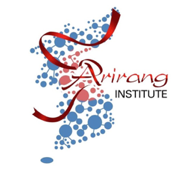The Korea Times of South Korea, Korean language edition, printed a scathing review of US foreign policy in a recent article. As the leader of the free world and sole superpower, the article claims the United States has retreated from its leadership role on the global stage. Instead, the article claims the U.S. now practices an “isolationist” foreign policy after the Trump administration pulled out of the Paris Peace Agreement on climate change. The article states, “without any reason the Trump administration did not participate in the summit meetings and was seen to be ignoring other countries.”
트럼프, EAS 3년째 아세안+3 은 2년째 불참… 파리기후협약 탈퇴
中 주도 ‘RCEP’ 합의 타결도… 美, 글로벌 리더십 약화 자초
“세계 유일의 초강대국인 미국이 갈수록 국제 무대에서 발을 빼고 있다. 지구촌의 공동 이슈 대응을 위해 전 세계가 맺은 합의를 일방적으로 깨는가 하면, 특별한 이유도 없이 ‘정상들 간 만남’의 자리에 불참하는 등 상대국을 무시하는 태도를 거리낌 없이 보이고 있는 것이다.”
The article continues stating, “This is the phenomenon of President Donald Trump’s foreign policy that is only focused on “America’s interests,’ ‘America First,’ and a ‘New Isolationism.’”
“국제사회의 일원으로서 책임을 수행하기보다는 미국의 이익만을 좇는 ‘신(新)고립주의(또는 미국우선주의)’ 외교 노선을 표방하는 도널드 트럼프 대통령이 취임한 이후 빚어진 현상이다.”
Korea Times reports that “a world without the United States is the new normal." The times produced the graphic below entitled, “Trump’s America ‘Isolationism’ Behavior.”
트럼프의 미국 ‘고립주의’ 행보. 그래픽=김문중 기자
The Times reported that U.S. President Donald Trump did not attend the ASEAN+3 (Korea, China, Japan) Summit or the East Asia Society Summit conference. Vietnam, Laos, and Thailand all sent their heads of state while the U.S. like seven other countries sent high-level diplomats.
“아세안+3(한ㆍ중ㆍ일) 정상회의 및 동아시아정상회의(EAS)에 미국 측 대표로 참석한 로버트 오브라이언 백악관 국가안보보좌관이 트럼프 대통령 친서를 대독하는 자리에서 아세안 국가들이 사실상 ‘미국과의 회담 보이콧’ 의사를 표명한 것이다. 아세안 10개국 중 이날 정상이 회의장에 모습을 드러낸 국가는 주최국인 태국(쁘라윳 짠오차 총리)과 베트남(응우옌쑤언푹 총리), 라오스(통룬 시술릿 총리) 등 3곳에 불과했다. 나머지 7개국은 외교장관 등 관료들을 대신 보냈다.”
The times continued stating that the ‘mistreatment of South East Asia’ by the U.S. was the ‘collective complaint.’
“아세안의 이러한 ‘집단 항의’는 트럼프 대통령이 EAS에는 3년 연속, 아세안+3에는 2년 연속 각각 불참한 데에서 비롯됐다는 해석이 지배적이다. 이른바 미국의 ‘동남아 홀대’가 낳은 결과라는 얘기다.”
Ko Myung-hyun, a researcher at the Asan Institute for Policy Studies stated, “Trump's "unilateralism" is a self-destructive act that has long been maintained. It is clear that if the U.S. alliance system is relaxed, China will gain more influence in East Asia or Taiwan problems, through ASEAN diplomacy," he said.
고명현 아산정책연구원 연구위원은 “트럼프의 ‘일방주의’는 오랫동안 유지돼 온 자기파괴적 행동”이라며 “그로 인해 미국의 동맹 체제가 이완될 경우, 중국이 동아시아나 대만 문제, 대(對)아세안 외교 등에 있어서 영향력을 키우고 득을 보게 되는 건 분명하다”고 진단했다.
The Times concluded its report stating, “Furthermore, it is highly likely that the U.S. isolationism will continue even after next year's U.S. presidential election. If President Trump succeeds in reelection, he will be more outspoken. Given that Senator Elizabeth Warren, a leading U.S. Democratic presidential candidate, recently announced her position as for a "Middle East" U.S. troop withdrawal, it means that even if there is a regime change, there will be only a difference in degree and the current stance will be maintained.”
게다가 내년 미 대선 이후에도 미국의 고립주의는 계속될 공산이 크다. 트럼프 대통령이 재선에 성공하면 더욱 노골화할 게 뻔한 데다, 미 민주당의 유력 대선 주자인 엘리자베스 워런 상원의원이 최근 ‘중동 지역 미군 철군’ 입장을 밝혔다는 점에 비춰 볼 때 정권 교체가 있다 해도 정도의 차이만 있을 뿐 현 기조는 유지될 것이라는 얘기다.
For the entire article click the link below.
http://news.naver.com/main/read.nhn?mode=LSD&mid=sec&sid1=001&oid=469&aid=0000437489


